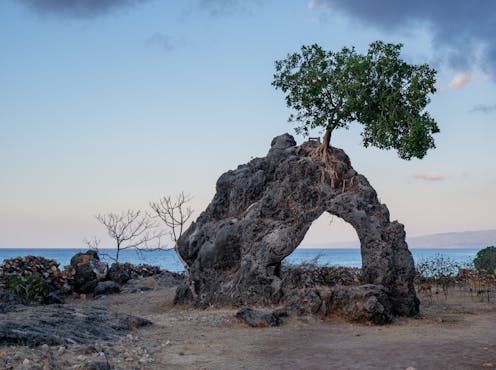A classical espionage novel with shades of Le Carré, The Idealist explores the tumultuous path to East Timorese independence
- Written by Tony Hughes-d'Aeth, Professor, Chair of Australian Literature, The University of Western Australia

The Idealist[1] is the eighth novel by respected Australian writer and academic Nick Jose[2]. Set in the turbulent period leading up to the referendum for East Timorese self-determination in 1999, the novel has the form of a political thriller, albeit one that remains restrained and meditative.
Review: The Idealist – Nick Jose (Giramondo).
The “idealist” of the novel’s title is a former solider turned Defence analyst named Jake Treweek, who has been sent to Timor to provide intelligence on the evolving situation. Supplied with a false identity by the department, he poses as a plumber working for AUSAID.
The action takes place in the shadow of two dramatic ironies. The first, which is the condition of all historical fiction, is the irony that we – unlike the characters – know how this story turns out, at least in general terms.
The 1999 referendum was not without violence, but it did not yield the bloodbath that was feared, given the history of brutality since the Indonesian invasion of East Timor in 1975. In the period before the referendum, the presence of Australian-led UN troops INTERFET was crucial in quelling the violence that flared between rival militias and, in 2002, East Timor became officially independent.

















